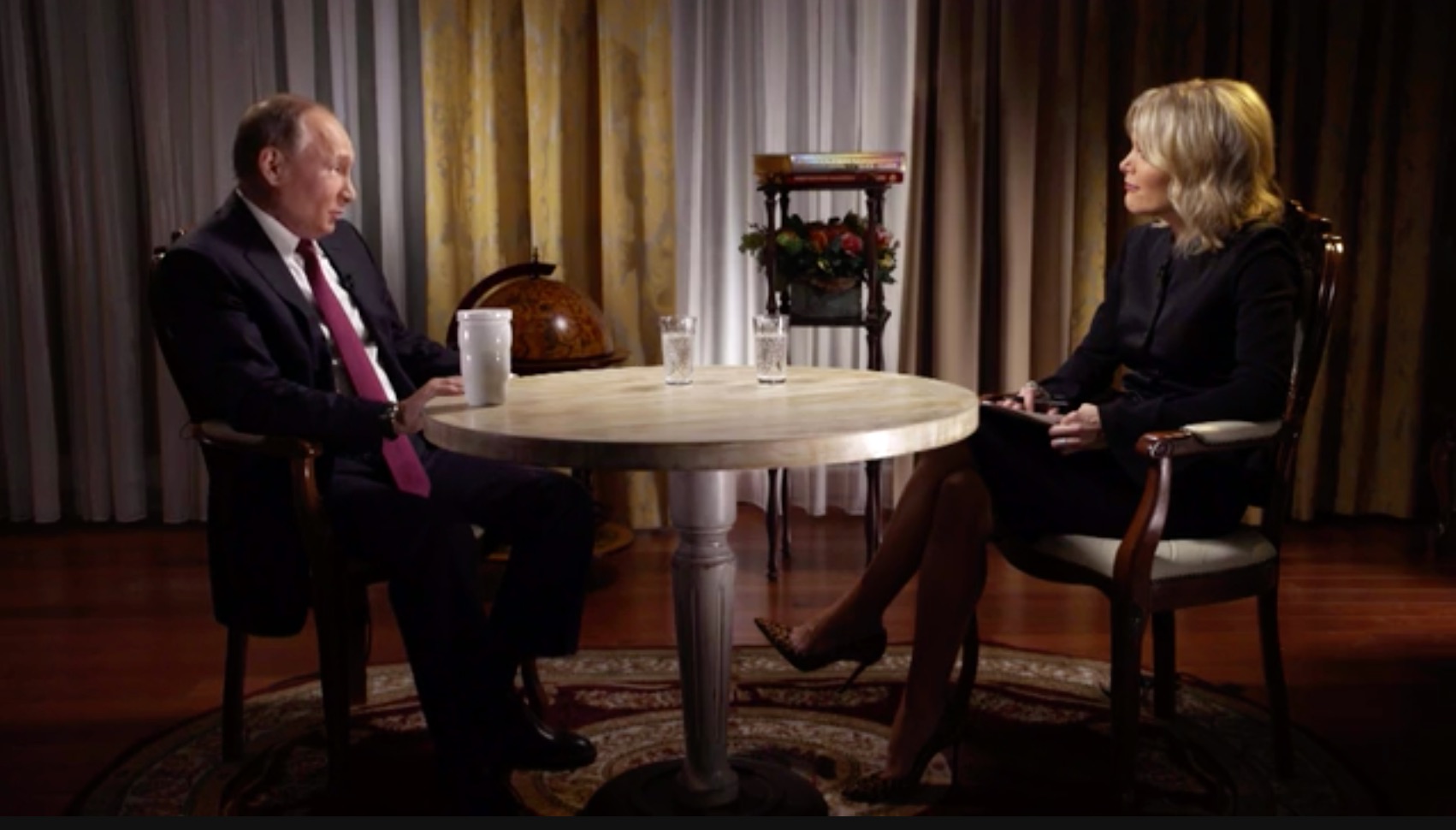- Russian President Vladimir Putin told NBC’s Megyn Kelly last week that he would “never” extradite the 13 Russian nationals who were charged by special counsel Robert Mueller with conspiring to interfere in the 2016 US election.
- He denied any knowledge of their actions and added that the defendants “do not represent the Russian state” or “the Russian authorities.”
- The assertion spoke to a key tactic the Kremlin often employs: using “cyber proxies” who operate outside the government to carry out its goals, allowing the Russian government to maintain plausible deniability.
- While the Justice Department is negotiating with the Russian government over extradition proceedings, the chances that Putin will agree to hand over the defendants are slim to none, given that they were acting on the Kremlin’s orders.
Russian President Vladimir Putin said this week that he will “never” extradite the 13 Russian nationals whom special counsel Robert Mueller charged with conspiring to interfere in the 2016 US election.
Putin made the comments during an interview with NBC’s Megyn Kelly. It was Kelly’s second interview with the Russian leader.
“What have you done to satisfy yourself that the 13 Russian nationals who have just been indicted, those three Russian companies, including, as you point out, some of your close friends, were not behind this?” Kelly asked. “This has caused an international incident.”
“I know that they do not represent the Russian state, the Russian authorities,” Putin replied. “What they did specifically, I have no idea. I do not know what they were guided by. Even if they did do something, it’s – simply that our – maybe it’s just our American colleagues.”
Mueller's office charged the 13 Russian nationals and three Russian entities last month with using a social media disinformation campaign to spread fake news and sow discord during and after the 2016 election, in a specific effort to boost President Donald Trump's campaign and denigrate his opponents.
The indictment laid out a stark and highly detailed picture of how the Russians carried out their scheme, including names, dates, and locations.
And last week, NBC News reported that Mueller is building a criminal case against Russians involved in the hack of the Democratic National Committee in the summer of 2016 and subsequent dissemination of stolen materials via Russia-linked actors like WikiLeaks and the hacker Guccifer 2.0.
Putin has repeatedly contested the US intelligence community's assessment that the cyberattacks and disinformation campaign were carried out on orders from the Kremlin.
Still using a Cold War-tactic
 Foto: Russian President Vladimir Putin speaks during his annual end-of-year news conference in Moscow, Russia, December 23, 2016. source REUTERS/Sergei Karpukhin
Foto: Russian President Vladimir Putin speaks during his annual end-of-year news conference in Moscow, Russia, December 23, 2016. source REUTERS/Sergei Karpukhin
But Putin has long espoused a philosophy on Russian hacking derived from a brand of information warfare, known as "dezinformatsiya," that Russians have used since at least the Cold War.
Disinformation campaigns are just one of the "active measures" that Russian intelligence uses to drive a wedge between nations the Kremlin considers hostile.
Meanwhile, Putin's assertion that the individuals behind the DNC hack and social media influence operation "do not represent the Russian state" or the "Russian authorities" speaks to another tactic the Kremlin often employs.
In particular, the Russian government is more willing to use "cyber proxies" like hackers and criminal groups that operate outside of the government, said Paulo Shakarian, the CEO of the cybersecurity threat intelligence firm CYR3CON.
Doing so allows Putin to tap into the capabilities of the underground Russian hacking community while being able to maintain plausible deniability.
The Russian leader said during his interview with Kelly that the US had to give the Russian government material evidence proving Russia was involved in interfering in the 2016 election.
"Let them just not talk to the press," he said. "Let them provide some materials, specifics, and data. We'll be prepared to look at them and talk about it."
"That would be great," Kelly replied. "Will you extradite them to the United States?"
"Never. Never," Putin said. "Russia does not extradite its citizens to anyone just like the United States. Does the United States extradite its citizens to anyone?"
The Department of Justice is currently negotiating with Russia over extradition proceedings, Deputy Attorney General Rod Rosenstein said during a press conference the day Mueller's charges were announced.
But, as Putin highlighted during his interview, the chances that Russia will agree to hand the defendants over are slim to none, particularly given that they were carrying out the Kremlin's orders when they meddled in the election and that the US and Russia do not have an extradition treaty.
Counterintelligence veterans also largely agreed that, from a practical view, Mueller's charges against the Russians carry little weight because Russia has long been engaged in information warfare with the US.
One of Putin's longest held beliefs is that cyberwar is a way to influence the informational battlefield. For that reason, the Russians "generally look at cyberwarfare as a way to support informational goals, like shaping an election," Shakarian said.
Watch a clip of the interview below:

